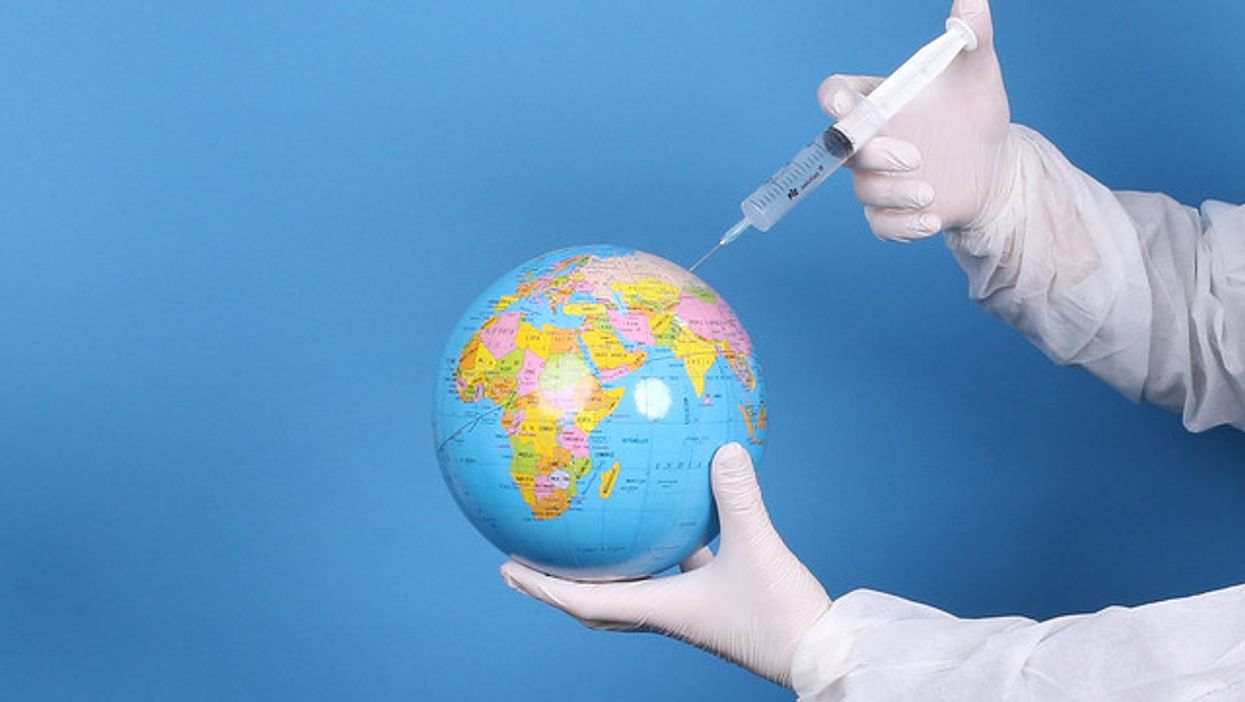Biden Saves ‘Billions Of Birds’ That Trump Tried To Kill
Reprinted with permission from American Independent
President Joe Biden this week delayed a Trump administration rule that experts said could have led to the deaths of "billions" of birds.
Under the Trump era rule, which would have rolled back the Migratory Bird Treaty Act (MBTA), companies, landowners, or other entities would not be penalized or prosecuted for accidentally killing birds. In effect, this means that a company like BP would not have been punished for the deaths of 100,000 birds resulting from its 2010 Deepwater Horizon oil spill. (Other research concluded that more than a million birds may have perished from the spill.)
The Trump rule was set to take effect on Feb. 8, but was blocked Thursday by the Biden administration.
Experts say that without guardrails limiting companies from being held accountable, the carnage could be devastating.
"Because of the interpretation of the Migratory Bird Treaty Act, BP rightfully had to pay large fines," conservation scientist Kenneth Rosenberg of Cornell University's Laboratory of Ornithology toldNational Geographic in February 2020, after the rule change was first announced. "Without that system, that opens the door not only for corporations to not pay for damages but to not worry about it and not put safeguards in place. And at some point, it can have a larger effect on certain species."
The Biden administration is now putting the Trump rule on pause for review.
"At President Biden's direction, Interior is delaying and reviewing the Trump administration's rollback of the MBTA to ensure continued progress toward common-sense standards that protect wildlife and their habitats," Interior Department spokeswoman Melissa Schwartz said in a statement on Thursday.
Schwartz touted the MTBA, passed in 1918, as "a bedrock environmental law critical to protecting migratory birds and restoring declining bird populations," adding that "the Trump administration sought to overturn decades of bipartisan and international precedent in order to protect corporate polluters."
Indeed, for more than a century, the MBTA has protected over 1,000 different bird species.
The National Audubon Society, a nonprofit bird conservation group, called the MBTA "the most effective bird conservation policy in our nation's history."
"Bird survival is human survival and birds are telling us they are in trouble. We have no time to lose," said the society's president and CEO David Yarnold. "The relentless attempts by the Trump Administration to undo existing environmental protections have placed us at a significant disadvantage."
Scientists and former federal officials have said Trump's new rule could have led to the demise of "billions" of birds in the coming decades, according to the Associated Press.
Steve Holmer, the American Bird Conservancy's vice president of policy, told the wire service that "all indications are the birds need more protections and that the public strongly supports protections and loves birds."
"We know that millions of birds will die," conservation group Center for Western Priorities deputy director Aaron Weiss told the Progressive Pulse. "And we are already facing an extinction crisis."
While in office, Trump also took aim at many other vulnerable species, including gray wolves, grizzly bears, wolverines, owls, among otherimperiled wildlife.
Noah Greenwald, the Center for Biological Diversity's endangered species director, said Trump has "the worst record" in history since the Endangered Species Act was passed in 1973.
"Just 25 species have been listed as threatened or endangered in the past four years, leaving hundreds of at-risk species without badly needed protection," the center said in a January announcement of its intent to sue the Trump administration for its delay in protecting 11 threatened species.
Greenwald added separately, "The Trump administration's undermining of the Endangered Species Act puts the monarch butterfly, eastern gopher tortoise and hundreds more plants and animals at risk of extinction."
The Biden administration's delay of Trump's MTBA rule is the start of "addressing this misguided decision," Schwartz said. The Fish and Wildlife Service will now allow for "additional engagement," providing 20 days for the public to comment on the rule.
Legal experts have said the administration will most likely "withdraw" the rule entirely, given "long-standing policy" and "intense opposition" from prominent environmental advocacy organizations.
"There has been great progress in finding solutions to bird mortality," Holmer told the AP this week. "...We're hopeful the administration will create a process to start implementing those solutions."
Published with permission of The American Independent Foundation.












